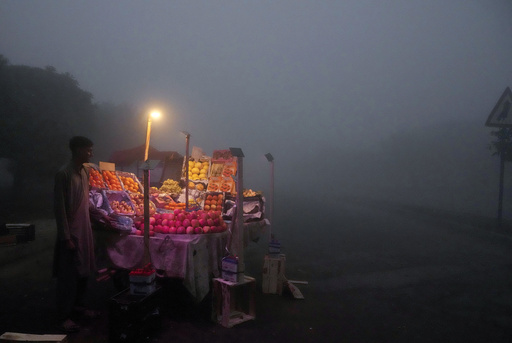LAHORE, Pakistan — A health emergency was declared on Friday in the Punjab province due to persistent smog, leading to the implementation of shutdowns in two significant cities.
The smog has been suffocating the region for several weeks, affecting nearly 2 million residents and enveloping extensive areas in a hazardous haze.
During a press conference, provincial minister Marriyum Aurangzeb announced the declaration of the health emergency and outlined the steps being taken to address the escalating situation.
As part of these measures, medical personnel have had their time off canceled, all educational institutions will be closed until further notice, and restaurants must close by 4 p.m., although takeaway services can continue until 8 p.m.
In addition, a lockdown will be enforced in the cities of Multan and Lahore, and construction activities in these locations will be suspended.
“Smog is currently viewed as a national disaster,” stated Aurangzeb. “This will not be resolved in just a month or a year. We will assess the circumstances after three days and develop a new strategy based on that evaluation.”
On Friday, parts of Lahore, which has a population of approximately 11 million, reported average air quality index levels surpassing 600, which is alarmingly above the 300 threshold that signifies hazardous health conditions.
Experts attribute the severe smog to a combination of factors including the high volume of vehicles, ongoing construction and industrial activities, as well as agricultural practices such as crop burning, especially as the winter wheat planting season approaches.
The national weather center in Pakistan has indicated that rain and wind are expected in the coming days, which may help alleviate the smog and improve air quality in various regions of Punjab.
Dr. Muhammad Ashraf, a professor at Lahore’s Jinnah Hospital and Allama Iqbal Medical College, emphasized the necessity for the government to implement preventive measures well before the onset of smog.
“It is more of an emergency than COVID-19 because respiratory tract infections are widespread among patients and the diseases are affecting people on a massive scale,” he noted earlier in the week.
Home Health crisis declared in Pakistani province as smog prompts lockdown of two...


